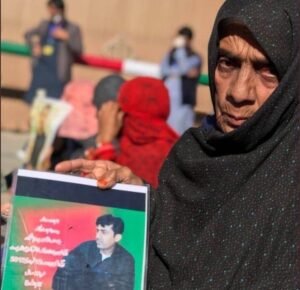Iran-Afghanistan Relations: Navigating Suspicion, Pakistan’s Influence, and Hurdles to Progress

By Imamudin Hamdard
Despite Iran and Afghanistan sharing a long border, common history, and natural ties on religious, cultural, linguistic, and economic lines, their relationship has always been mixed with suspicion and distrust. One of the main reasons for the same is the spoilsport played by Pakistan. The vested interest of Pakistan is against closer relationship between Iran and Afghanistan. Though Pakistan separately strives to improve their relations with Iran, it always looks Iran through the prism of Iran’s relation with India. This pushes Pakistan to counter the threat from emanating from closer Iran-Afghanistan relation which could have a natural extension to India.
Though the border between Iran and Afghanistan was drawn by British at the request of Shah of Iran in 1857, the formal diplomatic relations between both the countries started in 1921 with the signing of treaty of friendship. The initial disputes over the sharing of water rights of Helmand River diversified into other domains with the Iranian revolution and rise of Taliban. The relationship reached its worst point in 1998, when the Taliban killed eight Iranian diplomats and an Iranian journalist during the occupation of Mazar-e-Sharif city in the north of Afghanistan. During this the first era of Taliban, Tehran supported Ahmad Shah Masoud in his fight against Taliban. After the US invasion of Afghanistan and formation of new Afghan government which was more inclusive, Iran attempted to improve the relationship. Tehran even passed a law that provided Afghan nationals with a new chance to get Iranian residency specifically with professional achievements and those who have Iranian spouses and children are among those who are qualified to benefit from the law.
However, things soon changed. The increasing presence of American and NATO troops close to Iran’s border, US invasion of Iraq and threat to invade them has put Iran apprehensive of the Afghan government. Pakistan’s support to Taliban and targeting of Hazara Shia’s by Taliban put Iran on a tight spot in extending support to Taliban against US. Besides this, Pakistan has been using Iran as a transit point for trafficking heroine sourced from Afghanistan. As evident from the recent report by NATO, the whole supply chain of drugs trafficking from Afghanistan is completely controlled by Pakistan. Taliban doesn’t have a separate network for this trafficking and are fully dependent on the State sponsored entities in Pakistan to traffic drugs. To mask the source, Pakistan uses the route of Iran to traffic the drugs to South and South-east Asia. This has brought tremendous strain in the relationship between Iran and Afghanistan.
With the US and NATO withdrawal from Afghanistan, Iran kept its Mission in Kabul and attempted again to start afresh with Taliban. Iran tried to capitalise on the shelter provided to some leaders of Taliban during the US presence in Afghanistan. But the expectations of Iran remain unfilled. Here again Pakistan used it’s influence with Taliban to ensure that the tide doesn’t change. This coupled with lack of representative government from Taliban, targeting of Hazara Shia’s and huge influx of refugees from Afghanistan has slowed down any visible progress in the relationship.
Iran wants the Taliban to officially recognize Shia Jafari school of thought as part of Islamic jurisprudence tradition as the Taliban government codifies a new constitution for Afghanistan. Iran also wants the Taliban to adhere to the 1973 water treaty regarding the flow of the Helmand River and keep the Kamal Khan Dam open. Tehran has demanded that the Taliban leadership have to take steps to contain the flow of refugees, while Taliban leaders have raised the ill-treatment of Afghan refugees in Iran as a major problem.
It is a factor that Taliban is the best vanguard in its fight against Islamic State in Afghanistan, as it would be hard for the Fatemiyoun Brigade to operate without consent from the Taliban leaders. Pakistan doesn’t want any other elements to operate with Taliban and wanted to control Taliban especially the Haqqani network completely. Leaders in Iran continue to see Taliban as a proxy of Pakistan. It is imperative for Taliban to demonstrate otherwise. This is the first step towards normalising and putting the relationship on a growth trajectory. Stable and growing relationship with Tehran is important for Taliban to show to the world that they are not bound by Pak agencies, to diversify the relations and thereby increase the possibility of faster international recognition.
Note: The contents of the article are of sole responsibility of the author. Afghan Diaspora Network will not be responsible for any inaccurate or incorrect statement in the articles.











